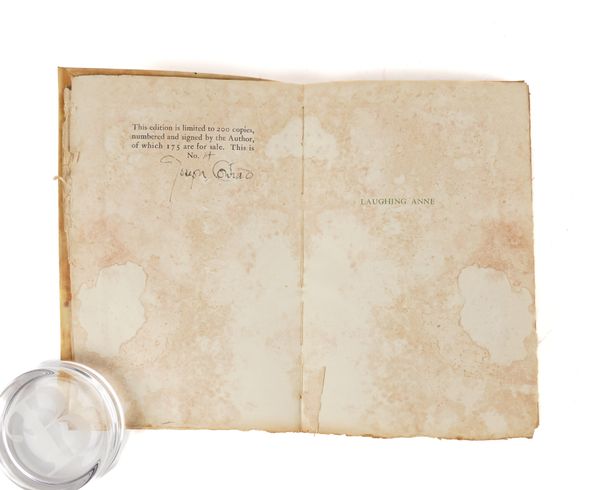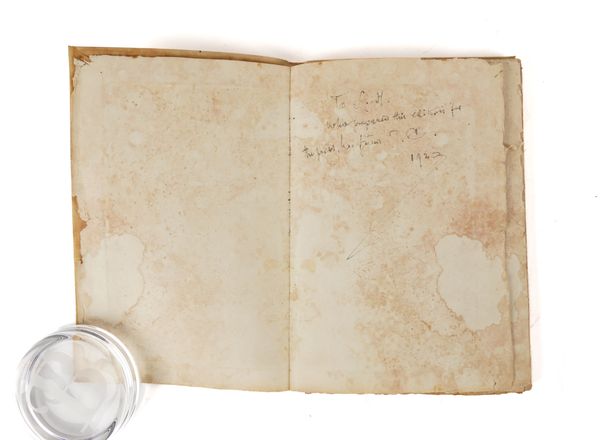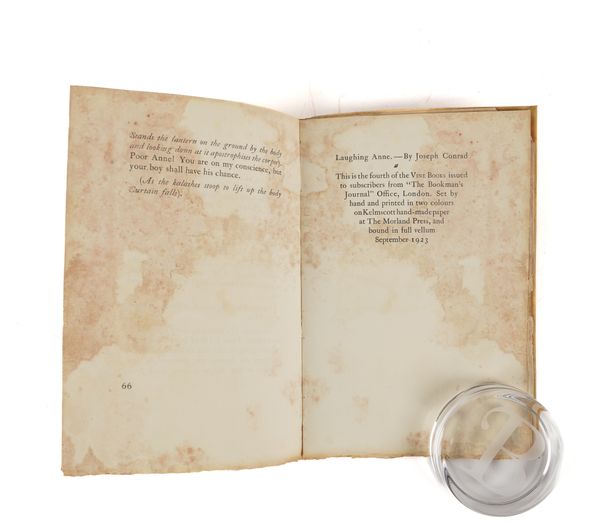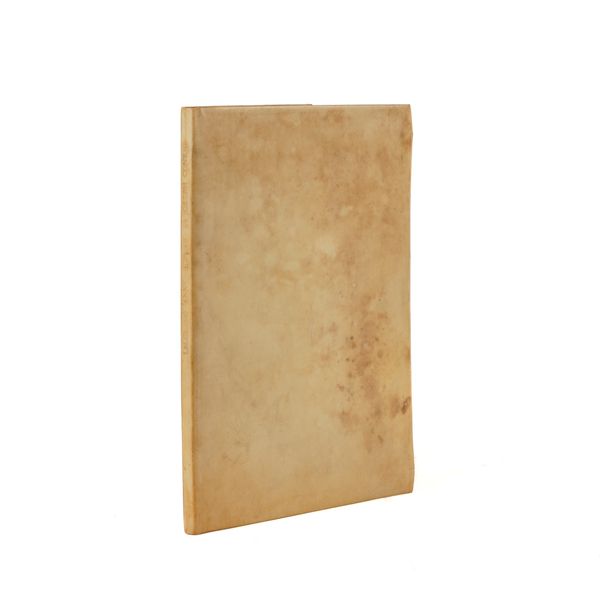Buyers Premium 25% + VAT | VAT is not applicable on bound books
CONRAD, Joseph (1857-1924). Laughing Anne, London, 1923, large 8vo (dampstained), vellum. FIRST EDITION. NO. 4 OF 200 COPIES SIGNED BY THE AUTHOR, PRESENTATION COPY, inscribed, "To L. H. who prepared this edition for the press, her friend, J. C., 1923.""
| Estimate: | £300 - £500 |
| Hammer price: | £200 |
CONRAD, Joseph (1857-1924). Laughing Anne. A Play. London: The Vine Books, 1923. Large 8vo (240 x 160mm). Half title, title with a vignette of palm trees printed in green (heavily dampstained throughout, some leaves loose and frayed, but without loss of text). Original limp vellum, the spine lettered in gilt, top edges gilt, others uncut (lightly stained, inner hinges broken, without the slipcase found with some copies). FIRST EDITION. NUMBER 4 OF 200 COPIES SIGNED BY THE AUTHOR. IMPORTANT PRESENTATION COPY, inscribed by the author on the front free endpaper, "To L. H. [i.e. Lilian Hallowes, see note below] who prepared this edition for the press, her friend, J. C., 1923." "This is the fourth of the Vine Books issued to subscribers from 'The Bookman's Journal' Office, London. Set by hand and printed in two colours on Kelmscott hand-made paper at The Morland Press, and bound in full vellum September 1923" (printed note at the end). "Laughing Anne is a dramatisation of Conrad's Story 'Because of the Dollars' from the collection Within the Tides (1915). The dramatised version of the story was completed in December 1921 but, as John Galsworthy notes in his preface to the later publication of the play in Laughing Anne & One Day More, it presents physical drawbacks which will not go down on the stage" (Cagle). The recipient of this presentation copy was Lilian Mary Hallowes (1870-1950) who, despite being Joseph Conrad's literary assistant and amanuensis from 1904 to 1924, remains a somewhat elusive and shadowy figure. As Borys Conrad noted of her in his memoir of 1970, "little or no mention has been made in the biographies of my Father of the lady who, after several unsatisfactory candidates, eventually occupied that post." See David Miller's article, "Amanuensis: A Biographical Sketch of Lilian Mary Hallowes, 'Mr Conrad's Secretary'," in The Conradian, vol. 31, no. 1 (Spring 2006), pp.86-103, in which he states, "That lady, invariably referred to in Conrad's letters as Miss Hallowes, will always be an incomplete figure, somehow very Conradian in the manner in which she can, and indeed does, disappear from view for long periods." See also Knowle and Moore's Oxford Reader's Companion to Conrad (London, 2000, pp.147-148) for a brief account of Hallowes' relationship with Conrad. See lot 337 for another book presented by Conrad to Lilian Hallowes. Cagle A59; Ehrsam p.279; Keating 112; Smith p.112.



